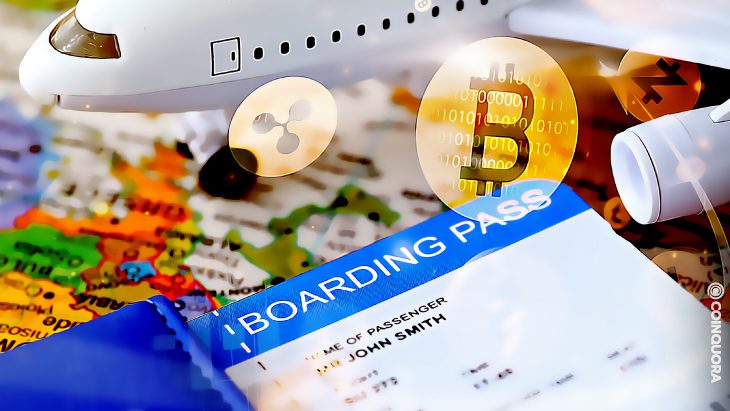- A press officer for the European Commission says that presenting crypto assets to the consulate may be accepted as long as it is justified.
- Some countries have hinted they are open to accepting crypto as proof of funds.
- Governments like the UK, however, still see “bitcoin savings” as unacceptable evidence for student visas.
Sooner or later, travelers who hold crypto assets would be able to present their tokens as proof of financial stability for travel visas.
Press Officer Laura Bernard of the European Commission explained how proof of funds such as bank statements are essential for international travel. She further added that presenting digital assets, such as Bitcoin, are not religiously unaccepted:
As each visa application is assessed on a case-by-case basis, there is no one-size-fits-all rule regarding the proof of sufficient financial means. As a result, there could be individual situations where a consulate might also accept other proof of assets, such as crypto-assets, whenever this is justified by the particular circumstances of the applicant and the intended journey.
Other immigration sectors have hinted they are open to accepting digital assets as there are no mandates explicitly limiting travelers of its use of crypto. Marc Piercey, Manager for Immigration New Zealand, stated that “there is no ban on using cryptocurrency as evidence of funds but applicants would need to provide evidence of the amount and ownership.”
However, he clarified that it would be easier for visa applicants “to show more traditional forms of funds such as bank statements or credit card balances.”
This may prove to be true as most immigration departments have stressed they only accept fiat bank statements as evidence of financial security. According to their website, the United Kingdom deems “Bitcoin savings” unacceptable for student visa applications. Moreover, a consulate from a Schengen state had previously clarified that it only accepts traditional bank statements as proof of funds.
Apart from these limitations, crypto holders looking to travel are also faced with the responsibility to properly present their digital assets to respective consulates.
Evan James, COO of Peninsula Visa, commented that although crypto is a liquid asset, “it would need to present almost as a bank account.” James added that “the onus would be on [the travelers] to make sure the consulate is comfortable with its liquidity.”
If this possibility comes to reality, low to middle-class earners, who are known to be heavy investors in Bitcoin and other digital assets, would benefit from this development if they wish to travel internationally.


